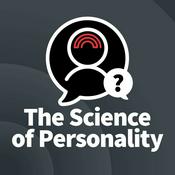18 episódios

Rethinking approaches to tackling violent crime
27/8/2025 | 41min
In many countries, the approach to tackling violent crime has been dominated by two ideas for generations. On the one hand, use bigger sticks, like longer prison sentences; on the other, use bigger carrots, like more economic opportunities, to make crime a less attractive choice. Both of these pillars of policy - enforcement and opportunity - rest on a fundamental assumption - that people are making rational decisions before they act. What if, for the vast majority of violent incidents, that assumption is wrong? What if the story of violence is less about good vs. evil, or poverty vs. wealth, and more about the way the human mind reacts to pressure? In this episode of the BIT Podcast, recorded at the Safer Streets Conference in London, Michael Hallsworth, BIT's Chief Behavioural Scientist explores a different way of thinking about violence - one rooted in behavioural science. We hear from: 🎙️ Jens Ludwig, University of Chicago Professor and co-author of the book Unforgiving Places - on the stubborn problem of violence and challenging the status quo 🎙️ Dr Chico Tillmon, Executive Director of the Community Violence Intervention Academy at the University of Chicago - on programmes designed to reduce serious violence 🎙️ Oeindrila Dube, Professor of Global Conflict Studies at the University of Chicago's Harris School of Public Policy - on working with the Chicago Police Department to train officers in de-escalation skills 🎙️Jennifer Doleac, Executive Vice President at Arnold Ventures - on which interventions will have the greatest impact The BIT podcast Discover the fascinating and surprising world of behavioural insights by listening to the BIT podcast, brought to you by the Behavioural Insights Team. Find out how understanding the ways people really think and behave through behavioural science can help deliver a fairer society for us all. Links To learn more about BIT's work visit our website: www.bi.team

Why society changes: behavioural science explains social norms
01/7/2025 | 25min
Social norms can change rapidly — sometimes sparked by viral moments, other times by subtle cultural shifts. Can behavioural science not only explain these changes — but help shape them? Recorded at the Behavioural Exchange conference #BX2025 in Abu Dhabi, Michael Hallsworth, BIT's Chief Behavioural Scientist, dives deep into the science behind these shifts - asking the question 'What can behavioural science tell us about changing social norms?' We hear from: 🎙️ Nikos Nikiforakis, Professor of Economics at NYU Abu Dhabi and Director of the Center for Behavioral Institutional Design - on what triggers norm shifts, what holds them back, and why "social pioneers" matter. 🎙️ Elke Weber, Eindlinger Professor for Energy and Environment at Princeton University - how individual choices ripple into collective change 🎙️ Rasha Attar, Director of the UAE's Behavioural Science Group - on how leadership and policy can act as catalysts for societal shifts 🎙️ Barbara Fasolo, Director of the Behavioral Lab of Research and Teaching at the London School of Economics - takes us inside organisations to explore how internal norms evolve and how to overcome the biases that slow them down. What drives change, and how can we harness it? Tune in for a fascinating look at the evolving rules of society, and the science that might just shape its future. The BIT podcast Discover the fascinating and surprising world of behavioural insights by listening to the BIT podcast. Find out how understanding the ways people really think and behave through behavioural science can help deliver a fairer society for us all. Links To learn more about BIT's work visit our website: www.bi.team

What makes nations succeed? Insights from Nobel Laureate Professor James Robinson
04/6/2025 | 53min
Global inequalities are widening and the Covid-19 pandemic, polarisation, geopolitical conflicts and technological disruptions have exposed institutional fragilities worldwide. Understanding what drives successful governance and innovation is critical to addressing these challenges. Join Mónica Wills Silva, BIT's Director of International Programmes, as she sits down with Nobel Prize-winning economist Professor James Robinson, to hear his insights on how inclusive political institutions and innovation drive sustainable economic growth. Professor Robinson's expertise provided a rare opportunity to connect theoretical insights with practical policymaking, and offered actionable strategies for tackling global challenges, including inequality, climate change, and digital transformation. The BIT podcast Discover the fascinating and surprising world of behavioural insights by listening to the BIT podcast, brought to you by the Behavioural Insights Team. Find out how understanding the ways people really think and behave through behavioural science can help deliver a fairer society for us all. Links To learn more about BIT's work visit our website: www.bi.team

How is AI being used to create new ways to apply behavioural science?
20/5/2025 | 30min
Behavioural science is constantly evolving. But what are the latest developments, who is at the forefront of this work and what questions are they raising? Recorded at the Behavioural Exchange conference #BX2025 in Abu Dhabi, Michael Hallsworth, BIT's Chief Behavioural Scientist, explores the next frontier of the field with some of its most innovative practitioners - asking the question 'How will AI affect the ways we apply behavioural science to real-world problems?' We hear from: 🎙️ Sanjog Misra, Charles H. Kellstadt Professor of Marketing and Applied AI at the University of Chicago Booth School of Business - on using AI to deliver super-personalised messaging at scale 🎙️ John List, Professor in Economics at the University of Chicago - how AI can open up 'option C thinking' 🎙️ Rasha Attar, the Director of the UAE's Behavioural Science Group - on developing a tailored large language model to enhance understanding of public responses to policy areas 🎙️ Iyad Rahwan, Director at Max Planck Institute for Human Development and the Center for Humans and Machines - on the ethics of AI and user transparency Tune in to hear how the field of behavioural science is expanding in new and unexpected directions, and how artificial intelligence is being used not just to apply the science more effectively but also reshape the very questions we ask. The BIT podcast Discover the fascinating and surprising world of behavioural insights by listening to the BIT podcast, brought to you by the Behavioural Insights Team. Find out how understanding the ways people really think and behave through behavioural science can help deliver a fairer society for us all. Links To learn more about BIT's work visit our website: www.bi.team

You can't read your way out of a complex policy problem
03/3/2025 | 42min
The Behavioural Insights Team have spent the last 10 years developing solutions that are informed by behavioural science. These insights do not emerge overnight. Instead, they are grounded by a firm understanding of the systems in which we operate. Reading academic (or policy) papers is an important step to developing evidence based interventions, but it will only get you so far if you want to understand the context in which you want to implement an intervention. Instead, we argue that you need to leave the office and try to experience the context as closely as you can, either by directly experiencing it, or by directly speaking to the people that do. To try to convince you that you should step away from our desk, we've created a podcast which we think will give you a much better sense of why you can't read your way out of a complex policy problem. In this podcast, Alex Gyani and Rory Gallagher from BIT's Sydney office speak to Zoe Powell, Saul Wodak, Allison Wong, Edwina Crawford and Sophie Munroe about their experiences of going out into the field and some of the insights they took from that process. We'll describe projects that have tackled domestic violence, unemployment and the health and safety of gig economy workers. If you want to know more about those specific projects, just follow the links posted in this description. Note: that this podcast describes the court processes involved in domestic violence cases. While no acts of violence are described in the podcast, if you are affected by domestic violence or abuse, there are a number of services you can reach out to. Australia: Call 000 if you are in immediate danger. To access 24/7 counselling and support call 1800RESPECT on 1800 737 732. New Zealand: Call 111 if you are in immediate danger. Call 0800 456 450 free from any phone, 9am to 11pm every day. UK: Call 000 if you are in immediate danger. For free and confidential advice, anytime call 0808 2000 247. US: Call 911 if you are in immediate danger. For free and confidential advice, anytime call 1800 799 7233. Musical credits Intro: Next to you by Jessie Villa Outro: Cassette Deck by Basketcase Additional music by Enrize Studio
Mais podcasts de Ciência
Podcasts em tendência em Ciência
Sobre The BIT podcast
Ouça The BIT podcast, Ciência Sem Fim e muitos outros podcasts de todo o mundo com o aplicativo o radio.net

Obtenha o aplicativo gratuito radio.net
- Guardar rádios e podcasts favoritos
- Transmissão via Wi-Fi ou Bluetooth
- Carplay & Android Audo compatìvel
- E ainda mais funções
Obtenha o aplicativo gratuito radio.net
- Guardar rádios e podcasts favoritos
- Transmissão via Wi-Fi ou Bluetooth
- Carplay & Android Audo compatìvel
- E ainda mais funções


The BIT podcast
baixe o aplicativo,
ouça.





































